As someone who’s timed games on the sideline for 12+ years, here’s the fast answer to “how long are football games.” NFL games take about 3 hours. College can stretch to 3.5. High school sits around 2 to 2.5. Soccer (yes, the other football) runs about 95–100 minutes with stoppage time. That’s the real-world duration, with stoppage time, overtime, timeouts, replay reviews, and the whole messy clock circus all included.
The Quick Answer: Average Game Lengths by Level
- NFL: About 3 hours from kickoff to handshake
- College football: Often 3 to 3.5 hours (review city)
- High school football: 2 to 2.5 hours (quicker pace, fewer TV breaks)
- Soccer: About 1 hour 40 minutes to 1 hour 50 minutes (90 minutes + stoppage)
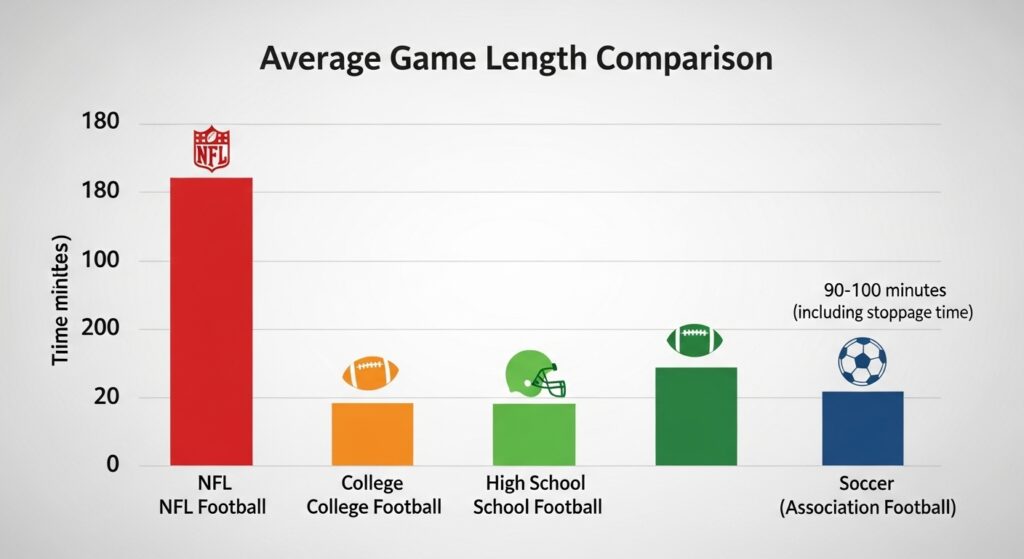
Handy table: planned time vs. actual time
| Level / Code | Clock Structure | Halftime | Overtime / Extra Time | Typical Real Duration |
|---|---|---|---|---|
| NFL | 4 x 15-min quarters | ~12 min | Regular-season: one 10-min OT; playoffs continue until winner | ~3 hours |
| College (NCAA) | 4 x 15-min quarters | ~20 min | Alternating possessions from the 25 (can go long) | ~3–3.5 hours |
| High School (US) | 4 x 12-min quarters (varies by state) | ~12–15 min | Usually alternating possessions from the 10 or 25 | ~2–2.5 hours |
| Soccer (Association) | 2 x 45-min halves + stoppage | ~15 min | Knockouts: 2 x 15-min extra time + penalties if needed | ~95–100 min (no extra time) |
Why Football Games Take Longer Than the Clock Says
I’ve always found that the clock isn’t the problem. It’s the stuff around the clock. TV timeouts. Injury time. Reviews. The ref who looks at a tablet like it’s a Magic 8-Ball. The game time says 60 minutes of play, but you and I both know we’re committing a full evening.
When I’m doing live commentary, I keep a side timer for “dead time.” Scary number. It balloons around reviews, ad blocks, and end-of-half clock management that somehow turns 90 seconds into 9 minutes. Coaches call it strategy. I call it a pacing tax.
For the NFL, the rules are actually pretty clear, and yeah, I read the tiny font so you don’t have to. If you want to peek at the official stuff, the NFL rulebook spells out why the clock stops, when it runs, and why your third quarter lasts longer than your patience. Two-minute warning? Built-in stoppage. Incomplete passes? Clock stops. Penalties? Don’t even ask.
How Game Length Differs by Level
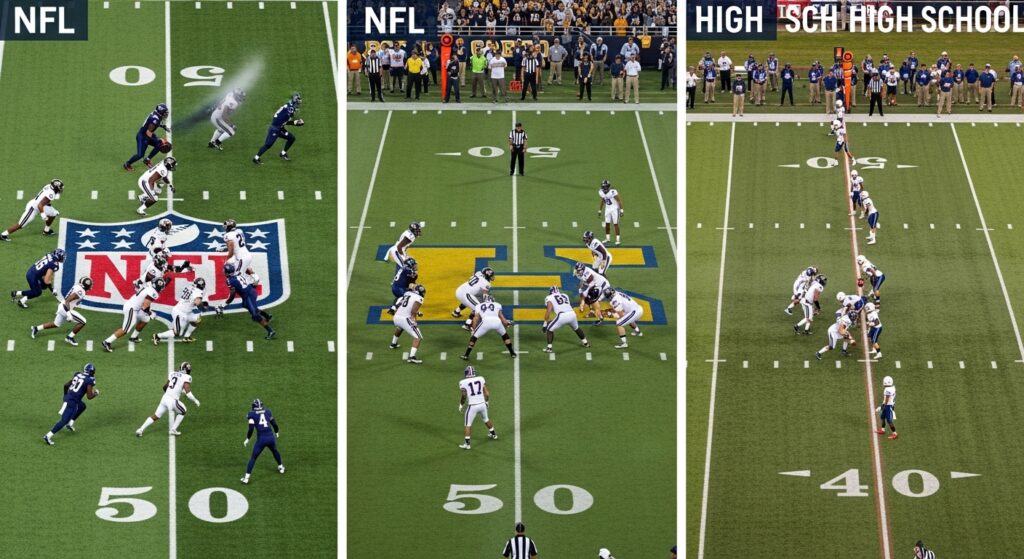
In my experience, college football takes longer because the play volume is higher and the reviews are frequent. I’ve sat through three back-to-back reviews and felt time bend. Don’t get me wrong. I love the detail. But if you’re planning dinner after the game, plan late. My game notes often turn into match analysis essays because there’s just so much more volume to digest at that level.
High school games: shorter, scrappier, and a little chaotic
High school games move. Twelve-minute quarters, fewer TV breaks, sometimes a running clock in a blowout. I’ve worked games in Kansas where we were in the parking lot before 9:15. If you’re into local flavor, my read on pace often lines up with the Kansas high school football power rankings, especially in 6A down to 8-man where pace and scoring can swing wildly.
Soccer Time: No Huddles, Just Flow
Soccer is simple on paper. Two halves of 45 minutes. The ref adds stoppage time for injuries and delays. That’s why the total ends up close to 95–100 minutes. This is not the same sport as American football. No play clock. No yards. No four downs. It’s flow, not chunks.
If you want the official backbone for the soccer clock, the IFAB Laws of the Game explain stoppage time, extra time, and the logic behind those “+5 minutes” boards that make every fan lose their mind.
Overtime and Extra Time: How Different Leagues Handle It
- NFL regular season: one 10-minute overtime. If still tied, it’s a tie. Playoffs play until someone wins.
- NCAA: teams alternate possessions from the 25. It can be a marathon. Once you hit late stages, it’s two-point conversions only. Chaos, but efficient chaos.
- High school: usually similar alternating possessions. Rules vary by state. Ask the white hat if you’re bored; he’ll glow.
- Soccer knockouts: two 15-minute halves of extra time, then penalties. Grab a seat. Then grab another.
What Actually Stretches Out a Football Game
- Reviews and replays: Great for accuracy. Murder on pace.
- TV timeouts: The unseen hand. You can feel them even at the stadium.
- End-of-half tactics: Spike, huddle, motion, timeout. Repeat. It works. It’s slow.
- Penalties and injuries: The chain crew walks. Trainers jog. Everyone waits.
- Weather: Lightning delays are legit. Safety first. Your nachos, second.
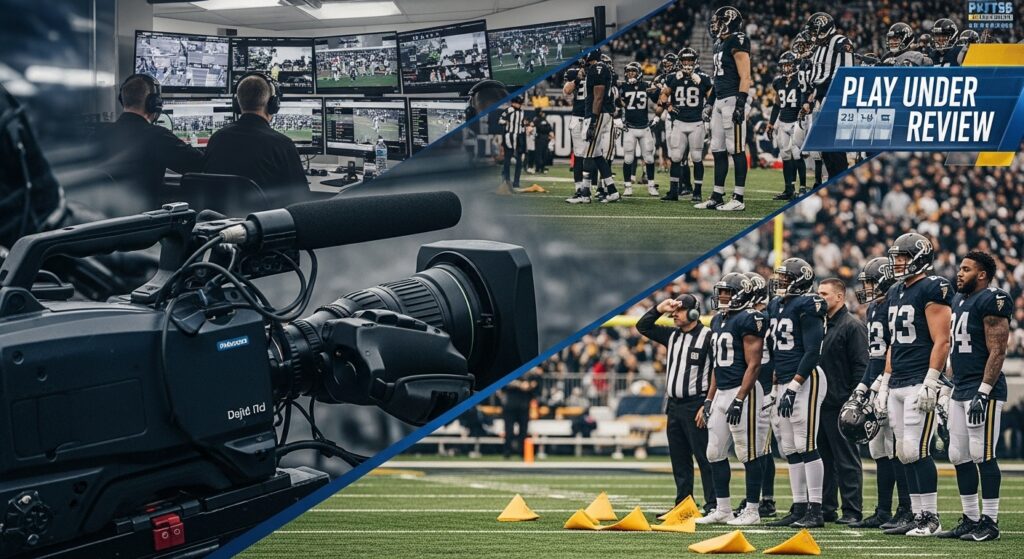
On broadcast days, I’ve seen the pregame chatter and postgame hits make the window feel like a mini-marathon. Draft talk sneaks in too. If you’re into the chessboard side of roster building, I drop notes during my NFL mock draft pieces about how certain teams play slower or faster based on personnel, which matters for viewing windows.
Pace of Play: Why Some Teams Feel Faster or Slower
What I think is this: pace is a quiet art. A hurry-up offense and quick-sub defense can shave minutes off the feel of a game. Grind-heavy teams stretch it out. You can see it reflected in team rankings when you compare plays per game and time of possession across the board.
The Official Rules That Control Game Timing
You can dive into start/stop logic, 10-second runoffs, and the joy of accepted vs. declined penalties in the official docs. The best jump-off is the NFL rulebook. It won’t make the game shorter, but it will make the strange moments make sense.
How I Plan My Day Around a Football Game
- NFL Sunday: I block a 3-hour window. Add 15–20 minutes if I know I’ll watch postgame.
- College Saturday: 3.5 hours for top games. If it’s a heavy rivalry or ranked-on-ranked, I leave 4.
- High school Friday: 2 to 2.5. Easy night unless weather laughs at me.
- Soccer afternoon: 1 hour 50 minutes. I can bake a pizza and not burn it. Usually.
Mini Clock Guides for Every Football Code
NFL: clock quirks that matter to fans
- Incomplete pass = clock stops. Expect longer fourth quarters in tight games.
- Out of bounds: it stops, then restarts on the ready-for-play except under 2 minutes (when it stays stopped until snap).
- Two-minute warning is a free timeout for everyone. Stretch your legs.
- Coaches’ challenges and booth reviews take time. The better the game, the more of them you’ll get.
College: why these games feel longer
- More plays per game, more passing = more clock stoppages.
- Longer halftimes for bands and pageantry. I love it. My schedule doesn’t.
- Overtime format can balloon. I’ve seen triple OT turn a 3-hour game into 4.
High school: local rules, local flavor
- Shorter quarters, simpler TV footprint.
- Running clock mercy rules in some states crush duration.
- Special teams miscues add spice and time. It’s part of the charm.
Soccer: stoppage time demystified
- Ref keeps the real time in their head/watch.
- Stoppage covers injuries, subs, time-wasting, and VAR checks.
- You’ll usually see +2 to +6 minutes. More if chaos.
Final Verdict: How Long Are Football Games, Really?
If we’re talking American football, plan 3 hours for NFL, a smidge more for college, and about 2 to 2.5 for high school. For soccer, budget about 1 hour 45 minutes. The phrase “how long are football games” sounds simple, but the true answer lives in the breaks and reviews. Once you learn the rhythm, you can predict the last 10 minutes like a weather app—sometimes right, sometimes hilariously wrong.
Random Notes from the Sideline (and Weather Delays)
- Lightning delays add 30 minutes after the last strike. I’ve had four resets in one night. Send help.
- Halftime shows are sneaky time sinks. Good bands? Worth it.
- Replay centers are great for justice. Less great for bedtime.
- If the first quarter takes 45 minutes, you’re on the long path. Pace yourself.
Soccer vs. American Football: Two Different Time Philosophies
Soccer sums up time at the end. American football slices it up on the fly. One flows, one pauses. Neither is “better.” Just different clocks, different moods. I watch both. I complain about both. Love is complicated.
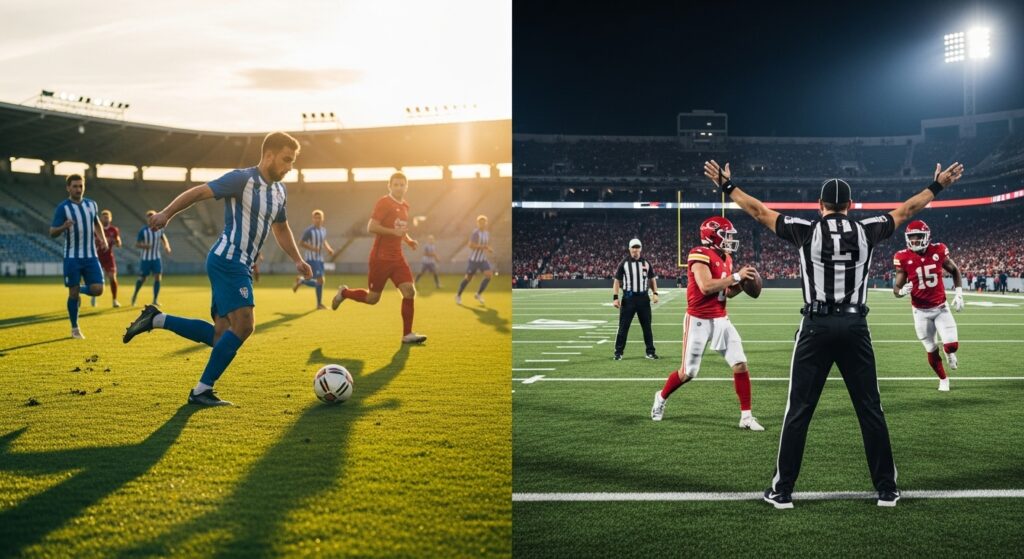
When friends ask me the simple question
I give the quick answer. NFL 3 hours. College 3 to 3.5. High school 2 to 2.5. Soccer 95 to 100. Then I warn them about overtime and storms. And I tell them to pour a cold drink before the fourth quarter. Trust me.
FAQs: Common Questions About Football Game Length
Do NFL games really last 3 hours, or is that just TV fluff?
It’s real. The play clock is 60 minutes, but ads, reviews, and timeouts push it to about 3 hours most weeks.
Why do college games feel longer than NFL games?
More plays, longer halftimes, and lots of reviews. Add overtime rules that can stretch forever, and boom—3.5 hours happens.
How long are soccer matches with stoppage time?
Usually 95–100 minutes. Knockout games with extra time can hit 120 minutes, plus penalty kicks.
How long are high school football games on a normal night?
About 2 to 2.5 hours. Faster if there’s a running clock in a blowout.
Okay, but how long are football games when it rains like crazy?
If there’s lightning, add at least 30 minutes after the last strike. I’ve seen games balloon to 4 hours with repeated delays.
I could keep going, but the fourth quarter is starting and my snack window is closing. You know how it goes.

I’m Daniel Moore, and I live for the thrill of the game. Get energetic live commentary, detailed match analysis, data-backed betting predictions, and official team rankings right here.

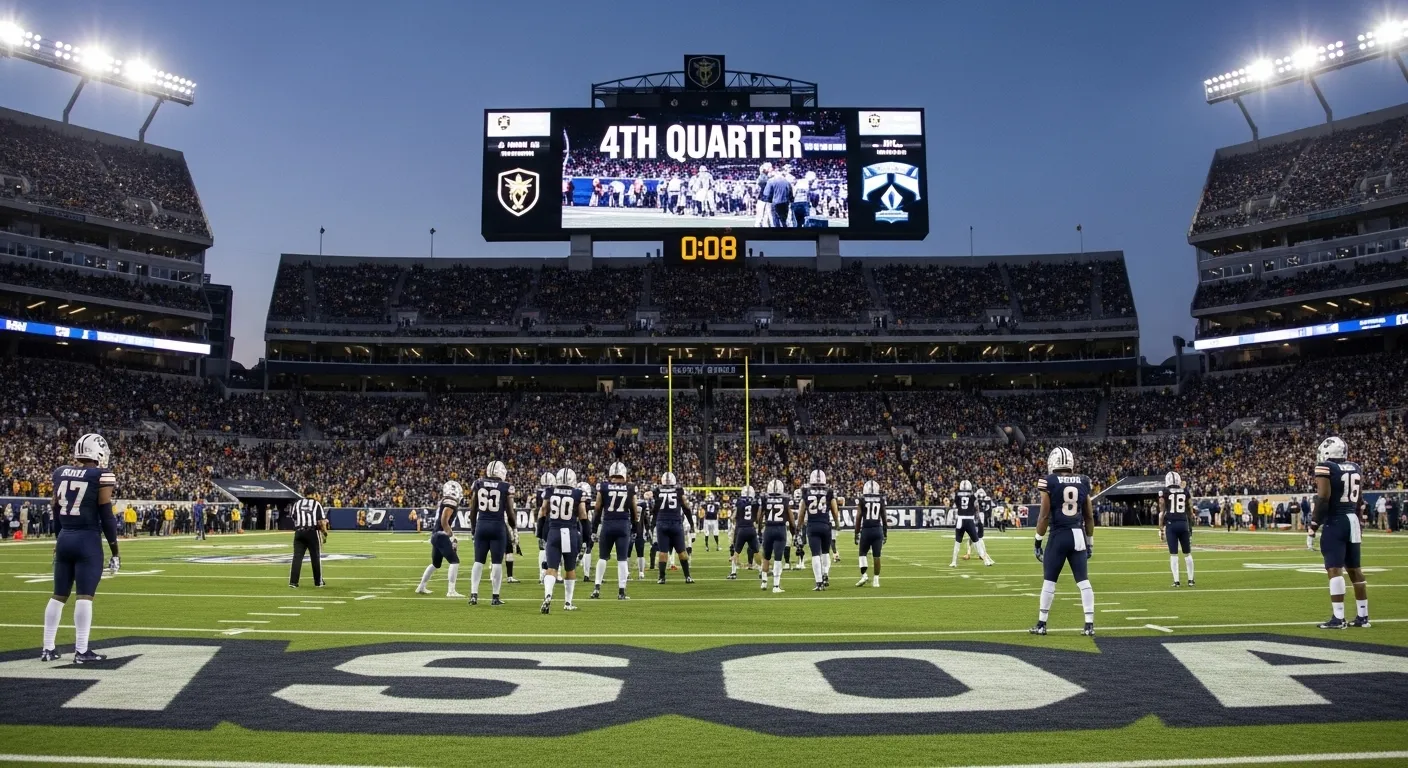

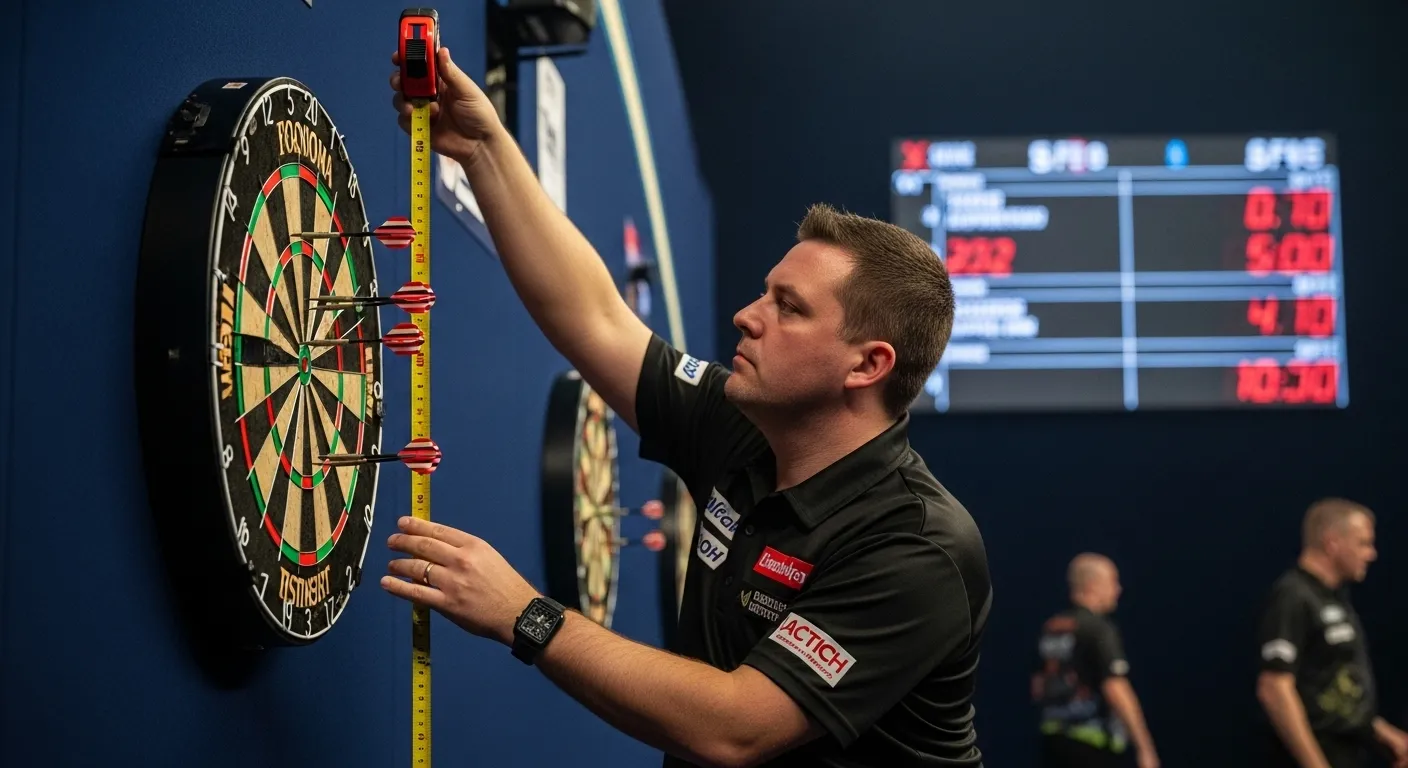
Do NFL games with constant play stoppages really last three hours?